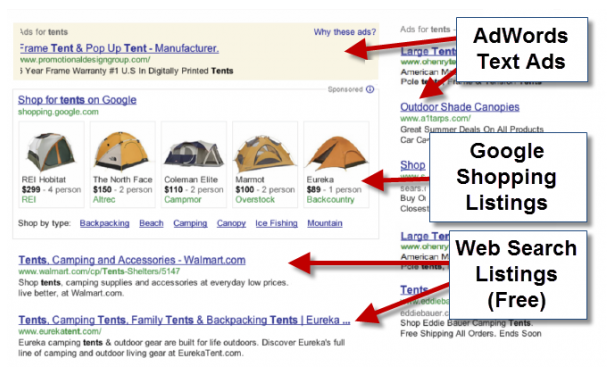Google recently announced that it will be switching its Google Product Search service to Google Shopping. Semantics aside, this change represents a major shift for the company, and it’s one that is sure to have profound effects for online retailers. Although the changeover won’t be complete until sometime this fall, small retailers are already scrambling to make sense of it all. With the switch, merchants will need to use Product Listing Ads in order to have competitive rankings in the listings. The days of free clicks on the portal are over. Learn more about the changes below.
Why is Google Making the Change?
Although it is clear that Google is making the change to earn more money, the company is coyly saying that the change is necessary to ensure that merchants keep data fresh and relevant. The numbers belie the real reason for the switch. Google Product Search spurs approximately $650 million in sales each year. With the new system, the company stands to earn upwards of $250 million annually. In its official blog post about the change, however, Google makes no mention of its own profits and simply says that the change is needed to deliver a better experience to users.
The Reality
It didn’t take long for detractors to start posting about the new Google system. Clicks will be based on Product Listing Ads, so they will generally be awarded to the highest bidder. Although Google claims that the rankings will be based on relevance and bid price, this clearly means that large retailers will emerge as the big winners here. Small retailers with limited budgets will be left in the lurch. Those who stay on top of such things aren’t surprised at all about the changes. Google has been increasingly siding with large online retailers for some time, and this is just the latest example of that phenomenon.

The Effect on Consumers
For consumers, Google’s switch to a purely commercial shopping model is sure to have many profound effects. Most notably, it will more than likely limit the number of choices that a user is presented with while searching on Google. After all, the top slots will go to the companies that have paid the most money. Relevance will be pushed aside in favor of keeping the highest bidder happy. Another possible ramification is that prices could creep up over time. People will have a harder time finding the truly best price through Google, so online retailers will have less incentive to offer the best prices possible.
At the end of the day, Google Shopping is going to make life easier and more profitable for large online retailers, and it will most likely leave small retailers and people who are looking for the best deals in the lurch.




